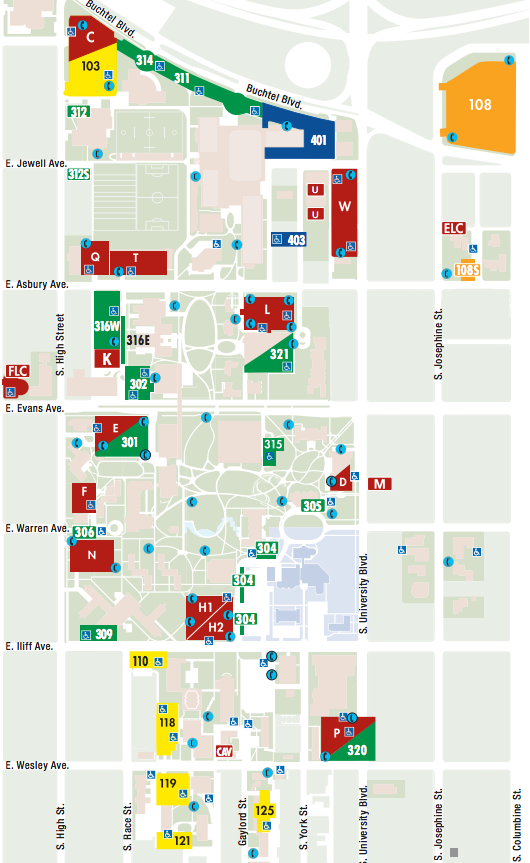The first thing you’ll see under the “Permits” tab of DU’s Parking and Transportation website is that “there is no free parking on campus.” For most students, this is a fittingly cold and ominous welcome to the world of DU parking.
In fact, this was my attitude towards parking at DU up until this week. With a little bit of research, I have found that DU Parking and Transportation is doing their best to cater to students’ needs, even though it may not be outwardly obvious.
Many students take issue with the fact that DU overbooks their parking lots.
“The general south lot is almost always full. If you go out for lunch, you might not be able to park there when you come back,” says second year economics major Morgan Smith.
While this does seem like an unfair practice, according to DU Department of Campus Safety Sergeant James Johnston, all lots are oversold by around 10 percent, which is the same rate you would see when booking a hotel room. Some people are inevitably going to drop out or stop parking in that lot, and DU needs to account for this fact. This overbooking rate isn’t static, though.
“Parking Services conducts lot counts for five consecutive business days at least one week per month and the over-sell is adjusted accordingly,” said Johnston.
Officers don’t randomly assign a number of permits to sell; the decision is made after careful investigation of historical data.
This brings us to the pricing of parking passes.
“DU has a monopoly on parking–that’s why they can charge so much,” said Smith. And it’s true. The Parking and Transportation site clearly states, “resident students bringing a car to campus MUST purchase a DU parking permit because parking on the streets adjacent to the University is expressly prohibited by an agreement with the City of Denver.
This monopoly means that DU can charge however much they want for parking and students will continue to buy passes; if they want to keep their cars here, they don’t have another option. But are DU’s permit prices significantly higher than those of similar schools?
Tulane University charges $575 for yearlong student parking, according to the Tulane Police Department, while DU charges between $207 and $873, varying from lot to lot, which is stated by the DU Parking and Transportation website. DU and Tulane have similar tuition rates, student body sizes and locations relative to large cities, Denver and New Orleans, making them comparable for this purpose.
If you ask your friend going to a school in a rural area about their permit prices, they will inevitably be lower because of the amount of available space. Since we’re lucky enough to be so close to downtown, land for parking lots is much more expensive.
Johnston says that the most significant step DU is taking to address the lack of parking is their plan to “…expand the capacity of parking on the south end of campus.”
He was excited to announce that, after a year of planning, the addition will hopefully be realized this coming fall. This change will greatly benefit the south-campus parking situation that Smith described to be “a mess.”
However, if DU Parking and Transportation wants to continue to build a quality relationship with the student body, they will need to spend more time listening to students, as well as publicizing it. If students know that the department is working on solving their issues, they will be much more willing to work with Campus Safety and Parking Services.
Although it may seem that DU isn’t listening to students’ complaints and suggestions, this is proof that at least some of these comments are being heard, and more importantly, being acted upon.










